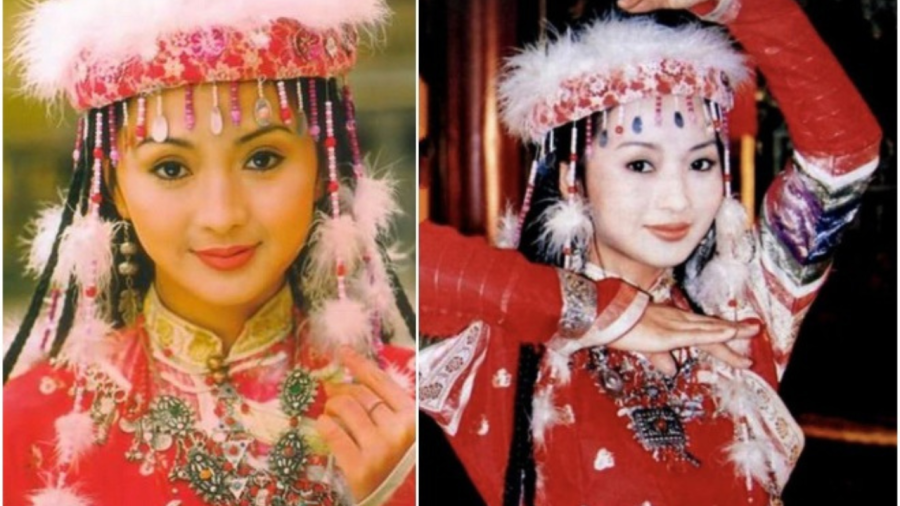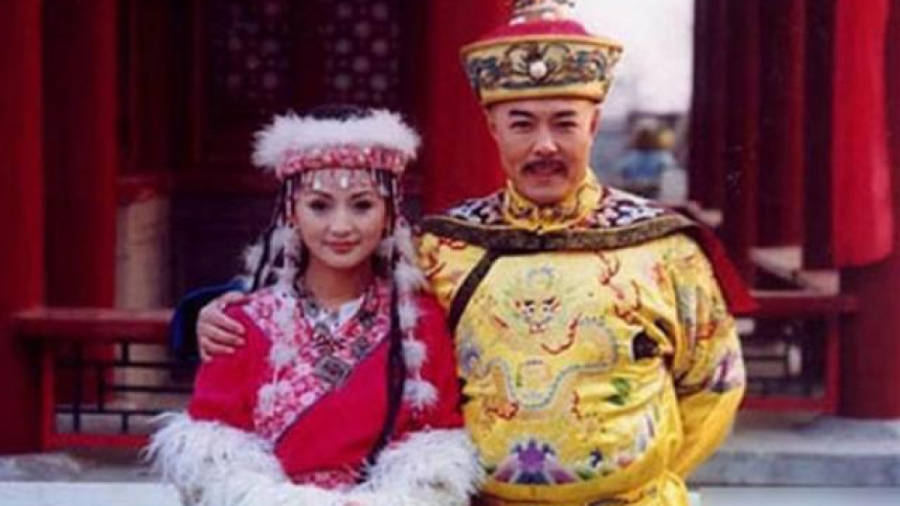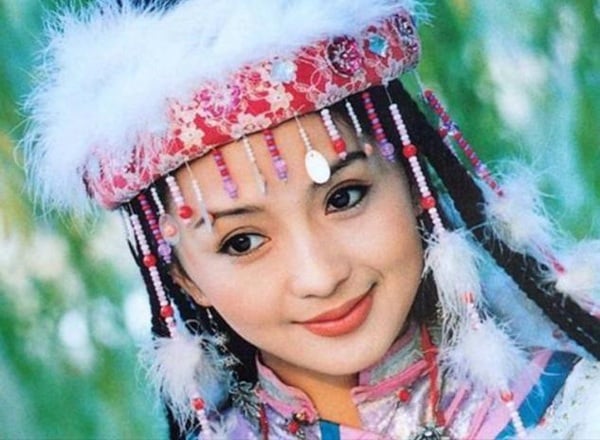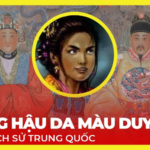Who is Dung Phi?
Not only famous in the TV series Hoan Chau Cache, more than 10 years ago, the character Ham Xuong, also known as “Fragrant Phi”, often appeared in many works at the end of the Qing Dynasty.
This name was given in the 18th year of the Guangtu Emperor (1875-1908), or 1892, in the work “Xi Cuo tap thuat thi” by writer Tieu Hung. This writer wrote that Ham Xuong in the time of Emperor Qianlong was a guest from Tenth Heaven, of extraordinary origin, with a fragrance all over her body, honest temperament, loves her mother but must stay away from home.

According to Chinese archaeologists, this person is real in Chinese history. They discovered the tomb of Ham Xuong in the Thuan Hoa Thanh Dong Tomb, in Duong Son City, Hubei Province.
In the tomb is a statue, below which is written “Ham Xuong is a person from Hoi Bo (nowadays Tan Cuong), she is extremely beautiful, with a fragrant fragrance all over her body without using medicinal ingredients, so she is called Ham Xuong”.
Emperor Qianlong (1735-1796) had more than 40 concubines and indeed there was a concubine who was an ethnic Hui called Dung phi. Whether she really exudes fragrance all over her body has not yet been verified.
Ham Xuong was born into the Hoa Trac clan, belonging to the Du Ngo Nhi ethnic group, Tan Cuong, so she was also called Hoa Trac Thi. Her older brother was Do Nhi Do, the 29th leader of Hoi Bo.
In 1760, after quelling a rebellion in Hoi Bo, Do Nhi Do and his assistants went to Beijing and were warmly received by Emperor Qianlong and bestowed with the title of Dai Cat Cat. His younger sister, at the age of 27, also entered the palace and was granted the title of Hoa quy nhan, which was Ham Xuong. Qianlong, after unifying Tan Cuong, immediately demanded their marriage for political purposes.
Legend has it that when Ham Xuong entered the palace, there was a good omen, the Southern cotton tree planted in the palace that year produced more than 200 fruits. Therefore, she was highly regarded and loved by the emperor. In the third year after she entered the palace, in 1762, the empress dowager bestowed her the title of Dung tan.
In 1765, Emperor Qianlong went on an inspection tour to the south, bringing along more than 1,000 people from the royal family, including Ham Xuong. On the way, the emperor was extremely fond of her, giving her more than 80 types of food. The beauty and her love for her homeland made the emperor love and trust her even more. In 1768, the empress dowager bestowed her the title of Dung phi and presented her with clothes and jewelry from the Manchurian palace.
After the empress dowager died, Emperor Qianlong did not want to establish another empress. In 1775, the noble concubine was convicted and sentenced to death, leaving only Dung phi with the highest status in the palace, highly regarded by the emperor. In 1788, Ham Xuong passed away at the age of 55.

Life in the palace of Dung Phi
Dung phi not only possesses a beautiful appearance and a special fragrance on her body, she is also lucky to inherit the singing and dancing genes of the Duy Ngo Nhi girls from ancient times.
When dancing, Dung phi’s whole body is extremely gentle, flexible, and her ancient movements are extremely agile, making her look like a graceful white swan.
After watching the performance of the beautiful Dung phi, Qianlong was enamored by her. That’s also the explanation for her rapid promotion: Entering the palace for 3 years and being granted the title of Tan, 5 years later being granted the title of phi, and standing third in the ranks of concubines.
Those who regularly watch movies about the Qing Dynasty knows that the Qing Dynasty had a very strict enthronement procedure.
Among the concubines of the emperor, concubines held the lowest position, followed by noble ladies, tan vi, phi vi, quy phi, hoang quy phi, and finally the empress.

Unless they were of noble birth or gave birth to a prince, it was very difficult for them to be promoted.
Yet Dung phi did not give birth to a child for Qianlong, but was promoted to quy phi. From this we can see how much Qianlong favored Dung phi.
What is even more special is that after Dung phi passed away, Qianlong was extremely heartbroken, to the point of abdicating the throne for 3 days.
In feudal society, an emperor, because of the death of a concubine, abdicating the throne for 3 days – this was extremely unusual, unprecedented in the Qing Dynasty. And this incident made the literati and the military officials extremely dissatisfied.
However, no matter what, they dared not speak up, and even more so they did not dare to get angry with the emperor, which is understandable.





































